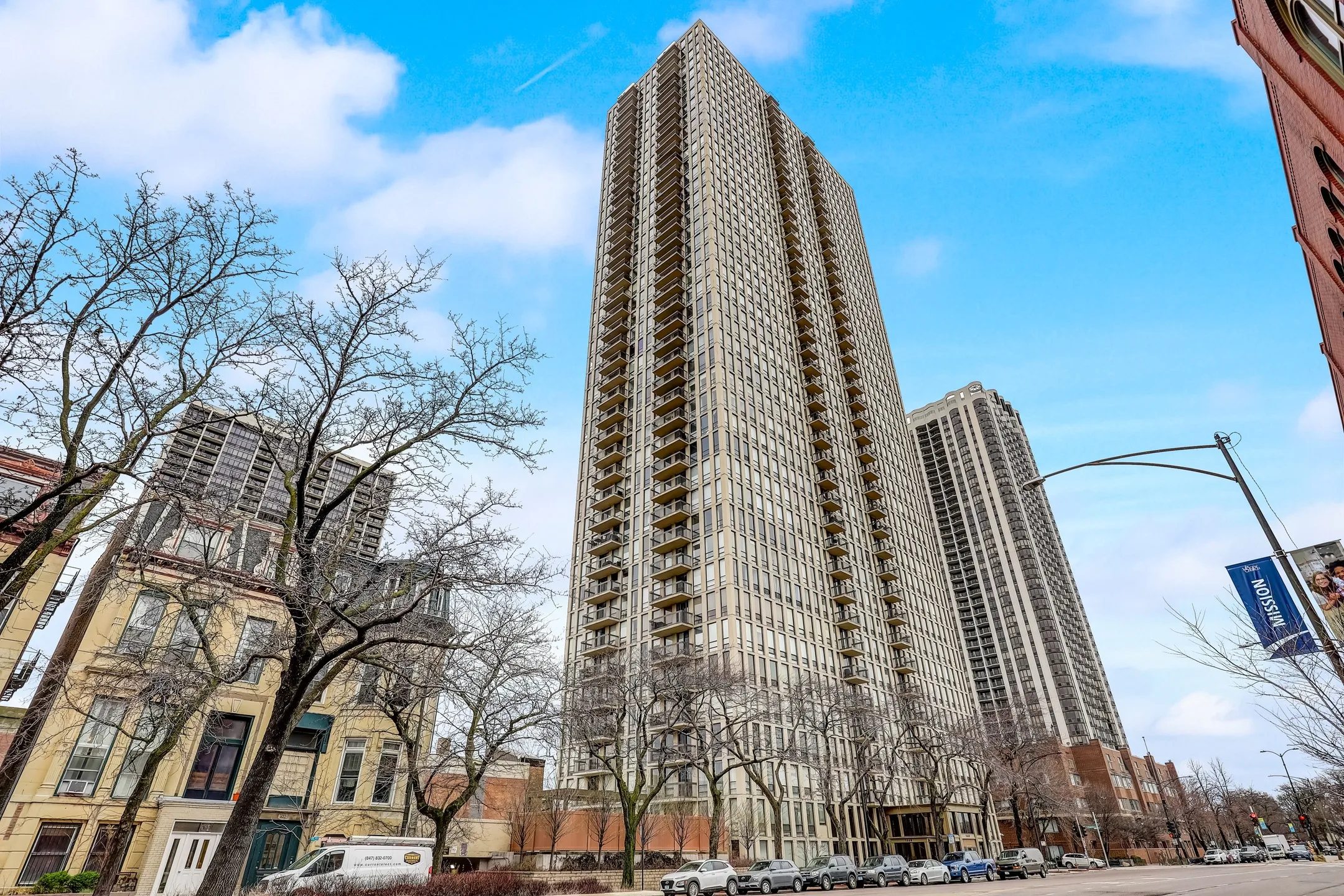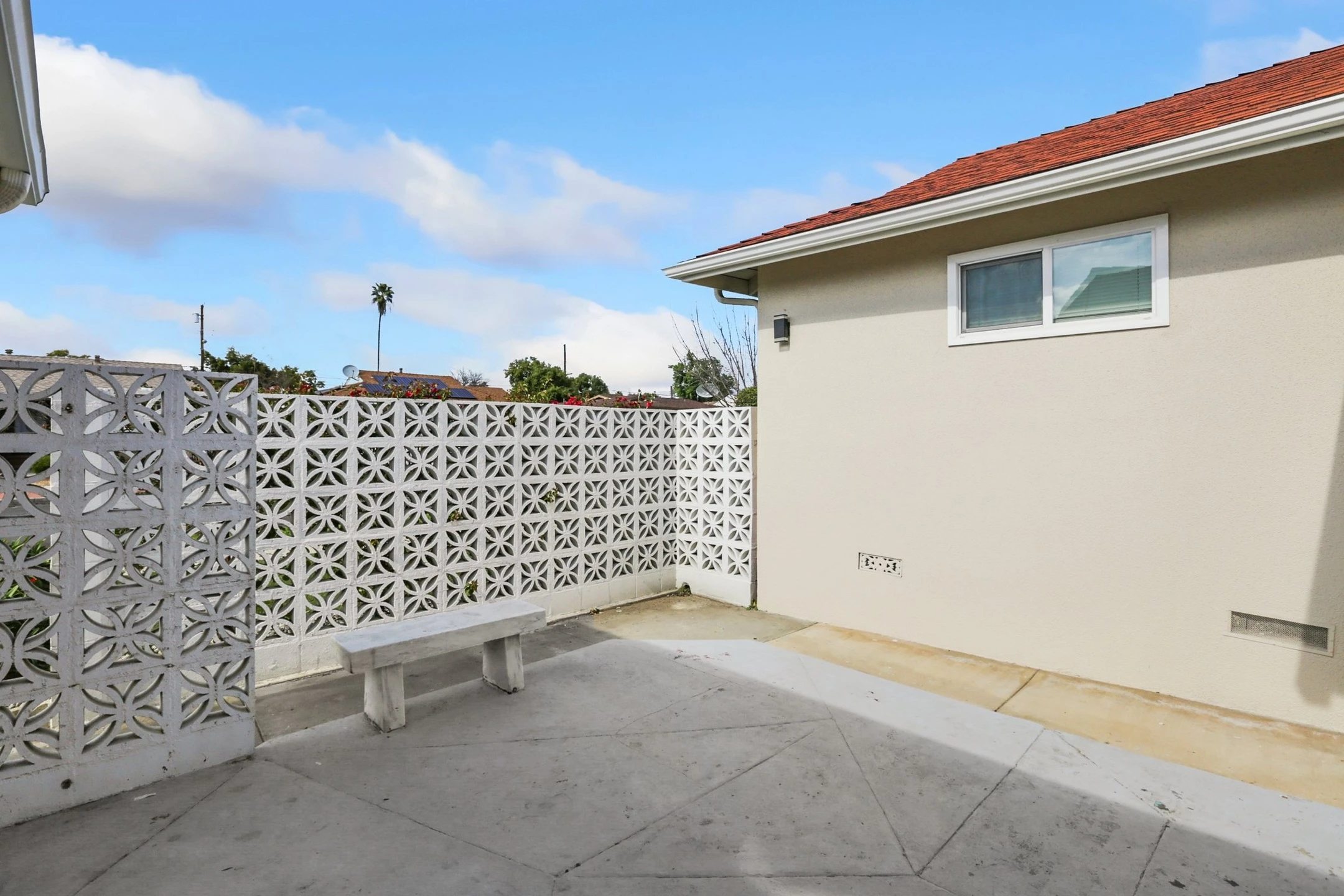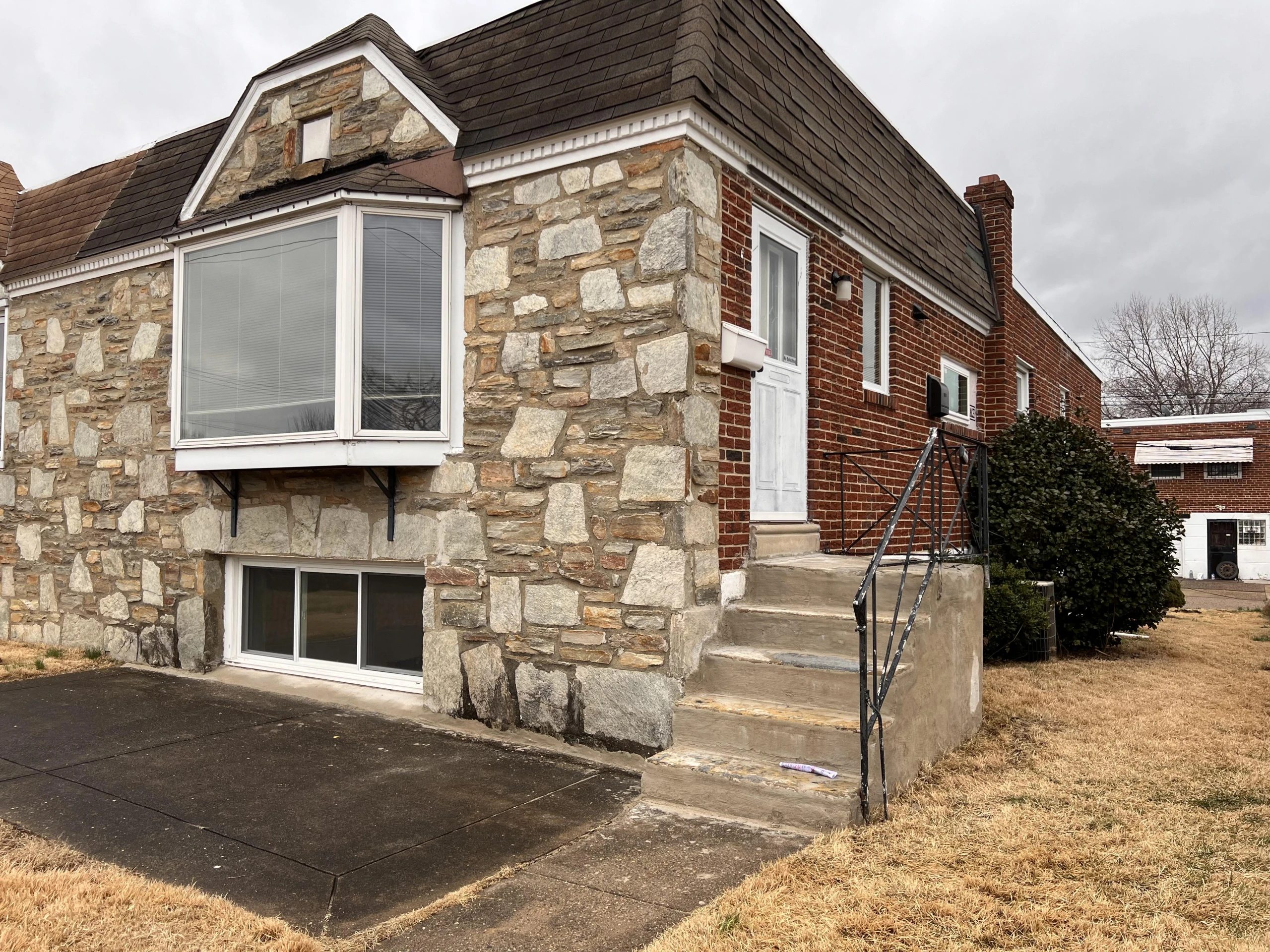
$335,000
- 800 ft²
Explore this vibrant city living experience in the heart of Old Town with stunning unobstructed …

$335,000
Explore this vibrant city living experience in the heart of Old Town with stunning unobstructed …

$875,000
Discover this beautifully updated single-story home nestled in the heart of Arleta. Brimming with …

$360,000
Explore this newly listed semi-detached property on Century 21 featuring a finished basement. The …

$1,295,000
This beautiful ranch-style home on a 1.79-acre property in Dammeron Valley offers the perfect blend …
Low interest rates: Interest rates for mortgages have been historically low, which has encouraged more people to buy homes.
Increase in home prices: Home prices have been rising steadily in recent years, driven by high demand and low inventory.
Remote work and migration: The COVID-19 pandemic has led to an increase in remote work, which has prompted some people to move away from crowded cities and into more affordable suburban or rural areas.
Increase in home sales: Despite the pandemic, home sales have remained strong, with many buyers taking advantage of low interest rates and remote home-buying options.
Increase in demand for larger homes: With more people working from home, there has been an increase in demand for larger homes with home office space and outdoor areas.
Emphasis on sustainability: There is a growing emphasis on sustainability in real estate, with more buyers seeking homes with energy-efficient features and sustainable building materials.
Increase in rental demand: The rental market has also been strong, with high demand for apartments and rental homes.
Urbanization: Many major cities in the United States are experiencing a trend of urbanization, with more people moving to cities and urban areas.
Aging population: As the baby boomer generation ages, there is an increasing demand for senior living facilities and retirement communities.
Affordable housing: There is a growing need for affordable housing, particularly in urban areas where the cost of living is high.
Sustainability: As mentioned earlier, there is a growing emphasis on sustainability in real estate, with more buyers seeking homes with energy-efficient features and sustainable building materials.
Mixed-use developments: Mixed-use developments that combine residential and commercial spaces are becoming increasingly popular in urban areas, offering residents easy access to amenities and services.
E-commerce and logistics: With the rise of e-commerce, there is an increasing demand for industrial real estate, particularly for logistics and distribution centers.
The cost of real estate can vary greatly depending on factors such as location, type of property, size, amenities, and local demand.
In general, some of the most expensive cities to buy or rent real estate in the United States include San Francisco, New York City, Los Angeles, Seattle, and Boston. On the other hand, some of the more affordable cities for real estate include Pittsburgh, Cleveland, Detroit, and Memphis.
Additionally, the cost of different types of real estate can also vary greatly. For example, the cost of a single-family home can be significantly higher than that of a condo or townhouse in the same area. Similarly, the cost of commercial real estate such as office space or retail space can also vary greatly depending on location and local demand.
Here are some approximate median home prices for a few major cities in the United States based on data from Zillow:
It's important to note that these are general trends and that the cost of real estate can fluctuate greatly depending on the specific area and type of property. To get more specific information on the cost of real estate in a particular area, it's recommended to consult local real estate websites or work with a reputable real estate agent or broker.
The standard features and amenities that come with a particular type of property can vary greatly depending on the type of property and the location. Here are some examples of common features and amenities that are often included with different types of properties:
Single-Family Home: A typical single-family home will have one or more bedrooms and bathrooms, a kitchen, a living room, and a dining room. It may also include a backyard or outdoor space, a garage or carport, and possibly a basement or attic for storage. Some homes may also include additional features such as a fireplace, a swimming pool, or a home office.
Condominium: A condominium typically includes one or more bedrooms and bathrooms, a kitchen, and a living area. Condos may also come with amenities such as a fitness center, a swimming pool, a clubhouse, and on-site maintenance and management services. Condos may also include features such as a balcony or patio, in-unit laundry facilities, and assigned parking.
Apartment: An apartment typically includes one or more bedrooms and bathrooms, a kitchen, and a living area. Apartments may also come with amenities such as a fitness center, a swimming pool, on-site laundry facilities, and on-site maintenance and management services. Some apartments may also include features such as a balcony or patio, a fireplace, or a washer and dryer in the unit.
Commercial Property: A commercial property can vary greatly in terms of size and features depending on the type of business it's intended for. Some common features of commercial properties may include office space, a retail storefront, a warehouse or storage space, or a restaurant or food service area. Commercial properties may also include amenities such as parking, a loading dock, and security systems.
It's important to note that these are just general examples of the types of features and amenities that are often included with different types of properties. The specific features and amenities that come with a particular property will depend on the location, the type of property, and the individual seller or landlord.
The legal requirements and paperwork needed for buying or renting a property can vary depending on the location and type of property. Here are some common legal requirements and paperwork needed for both buying and renting a property:
It's important to note that these are just general examples of the legal requirements and paperwork needed for buying or renting a property. The specific requirements and paperwork needed will depend on the location and individual seller or landlord. It's recommended to work with a reputable real estate agent or attorney to ensure that all necessary legal requirements and paperwork are properly handled.
There are several ways to find a reputable real estate agent or broker in a specific area. Here are some suggestions:
Referrals: Ask friends, family, and coworkers who have recently bought or sold a property in the area for recommendations. This is often one of the most effective ways to find a reputable agent.
Online Search: Use online resources such as real estate websites, professional directories, or social media platforms to search for real estate agents or brokers in the area. Look for agents who have a good track record, positive reviews, and experience working in the specific area you are interested in.
Local Real Estate Offices: Visit local real estate offices in the area you are interested in and ask for recommendations. Many real estate agents work for larger brokerages, and visiting the office can be a good way to connect with multiple agents and find someone who fits your needs.
Industry Associations: Check with industry associations such as the National Association of Realtors or the National Association of Real Estate Brokers for a list of licensed real estate professionals in your area.
Open Houses: Attend open houses in the area to meet real estate agents who are actively working in the local market.
Once you have identified potential agents or brokers, take the time to interview them and ask for references. Look for someone who has experience working in the specific area you are interested in, is knowledgeable about the local market, and has a track record of success.
The decision to buy or rent a property depends on individual circumstances, preferences, and financial situation. Here are some pros and cons of buying vs. renting a property in the current market:
Ultimately, the decision to buy or rent a property depends on individual circumstances, preferences, and financial situation. It's important to carefully consider the pros and cons of each option before making a decision.
Mortgage rates and options available for buying a property can vary depending on the lender, type of mortgage, and individual financial circumstances. Here are some common mortgage options and factors that can affect mortgage rates:
Fixed-rate mortgage: A fixed-rate mortgage has a set interest rate for the life of the loan, usually 15 or 30 years. This provides predictable monthly payments, but the interest rate is typically higher than adjustable-rate mortgages.
Adjustable-rate mortgage (ARM): An ARM has an interest rate that can change over time, usually after a fixed initial period of 5, 7, or 10 years. This type of mortgage can offer lower initial interest rates, but the rate can increase over time, leading to higher monthly payments.
Conventional mortgage: A conventional mortgage is not backed by a government agency and usually requires a higher down payment and credit score than government-backed mortgages. The interest rate and terms can vary depending on the lender and the individual's creditworthiness.
Government-backed mortgage: Government-backed mortgages, such as FHA, VA, and USDA loans, are designed to make homeownership more accessible for those with lower income or credit scores. These loans typically have lower down payment requirements and more flexible credit guidelines than conventional mortgages.
Factors that can affect mortgage rates include credit score, down payment amount, loan amount, loan term, and economic conditions. It's essential to shop around and compare mortgage rates and terms from multiple lenders to find the best option for individual circumstances. It's also a good idea to get pre-approved for a mortgage before starting the home search process, as this can help determine the budget and narrow down the property options.
Determining if a property is a good investment opportunity in the United States requires evaluating several factors, such as the property's location, condition, cash flow, potential for appreciation, and financing options. Here are some key considerations when evaluating a property as an investment in the US:
Location: Consider factors such as the property's proximity to employment centers, transportation, schools, and amenities. Properties in high-demand areas with limited available housing tend to have a higher potential for appreciation.
Condition: The condition of the property can also impact its investment potential. A property that requires significant repairs or renovations may require a substantial investment of time and money, which can impact the overall return on investment.
Cash flow: A property's cash flow is the income generated by the property minus expenses such as mortgage payments, property taxes, insurance, and maintenance costs. A positive cash flow indicates that the property is generating income, while a negative cash flow means that the property is costing more than it's earning.
Potential for appreciation: Properties in areas with strong economic growth, job growth, and population growth tend to appreciate more quickly than those in stagnant or declining markets. Consider the potential for future development and infrastructure improvements in the area.
Rental demand: If the property is intended as a rental, consider the demand for rental properties in the area. Properties in areas with high rental demand and low vacancy rates can provide a steady stream of rental income.
Financing options: The terms of the financing, such as interest rates and down payment requirements, can impact the overall return on investment. Consider the available financing options and compare them to the potential return on investment.
It's important to do thorough research and analysis before investing in a property. Consult with real estate professionals, such as agents, brokers, and property managers, to help evaluate the investment potential of a property. Additionally, review historical data and projections of real estate trends and market conditions in the area to help make an informed investment decision.
There are many sources of real estate news and information in the United States, including:
National Association of Realtors (NAR): The NAR is the largest trade association for real estate professionals in the US. Its website provides a wealth of information on market trends, data, and research.
Zillow: Zillow is one of the largest real estate websites in the US, offering listings, data, and market trends.
Realtor.com: Realtor.com is another major real estate website that offers listings, data, and market trends.
Redfin: Redfin is a real estate brokerage that offers online tools, data, and market analysis.
Bloomberg Real Estate: Bloomberg covers real estate news and analysis with a focus on the financial aspects of the industry.
The Wall Street Journal Real Estate: The Wall Street Journal's real estate section covers national and international news and analysis.
Curbed: Curbed covers local real estate news and trends in major US cities.
Inman News: Inman News is a real estate news website that covers industry news and analysis.
National Real Estate Investor: National Real Estate Investor covers commercial real estate news and analysis.
Real Estate Weekly: Real Estate Weekly covers residential and commercial real estate news in New York City.
These sources can provide valuable insights into the US real estate market, but it's important to review multiple sources and consider the credibility and bias of each source when evaluating information.
When buying or renting a property in the United States, there are several important factors to consider, including:
Location: The location of a property is one of the most important factors to consider. Is the property located in a desirable area with good access to transportation, amenities, and services? Consider the proximity to schools, shopping centers, restaurants, and other amenities.
Size: The size of the property should match your needs and preferences. Think about the number of bedrooms, bathrooms, and living spaces you require.
Condition: Consider the overall condition of the property, including any repairs or renovations that may be required. A home inspection can provide valuable information on the property's condition.
Neighborhood: The neighborhood where the property is located can greatly impact your quality of life. Consider the safety, noise level, and overall community vibe.
Price: The price of the property is a critical factor to consider, both in terms of affordability and long-term investment potential.
Taxes and fees: Property taxes, homeowners association fees, and other expenses should be taken into consideration when calculating the overall cost of the property.
Financing options: Consider your financing options, including mortgage rates and terms, to ensure you can comfortably afford the property.
Future plans: Consider your future plans, including whether you plan to live in the property long-term or use it as an investment opportunity.
By considering these factors when buying or renting a property in the United States, you can make an informed decision and find a property that meets your needs and budget.